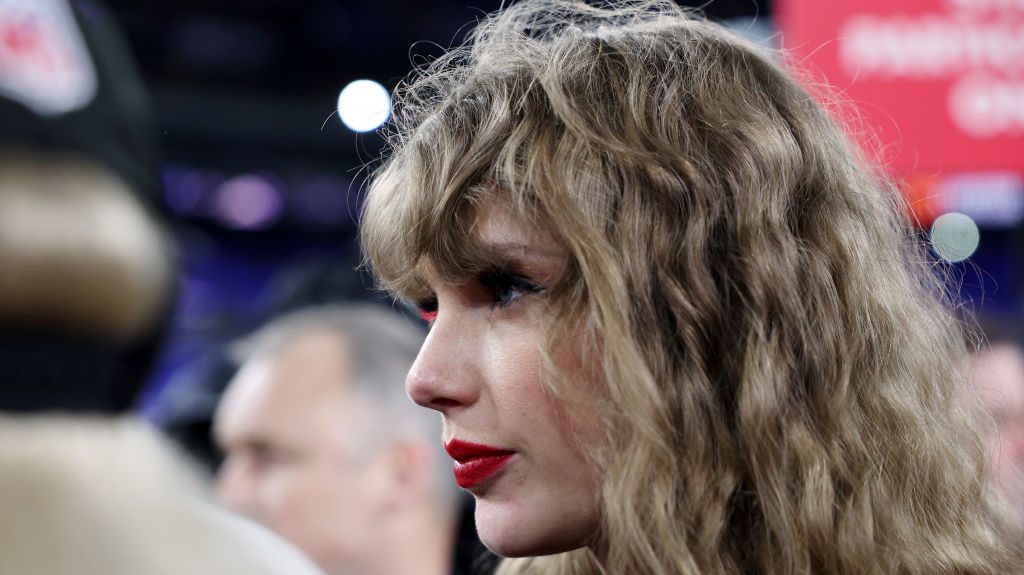
What Is the ‘Revenge Porn’ That Taylor Swift Experienced, and Why Does It Affect Women?
A phenomenon exacerbated by the rise of AI (Artificial Intelligence)
This past week, Taylor Swift became the target of various attacks on her image on social media. Several manipulated pornographic photos using Artificial Intelligence were circulating on the internet, much to the outrage of the artist’s fans, as reported by TMZ.
This, which may initially seem like a tasteless joke, is a form of sexual violence called revenge porn. A term originating from the United States but has also started to gain popularity in our country due to the undesired frequency of cases.
In this article, we delve into what revenge porn exactly is and why it affects women, considering that, in addition to Taylor, other artists such as Rosalía, Kim Kardashian, Ariana Grande, or Jennifer Lawrence have also experienced it.
What Is The Meaning of Revenge Porn?
Revenge porn, as revealed by some studies, is a form of sexual abuse that involves the distribution of sexually explicit images without the consent of the person in question. In other words, using nudity as a form of attack or public humiliation. These cases are usually associated with leaks made by the victim’s circle, whether it’s an ex-partner or friends. However, with the multiple – and dangerous – uses of generative Artificial Intelligence (AI), practically anyone can replicate these images and spread them, even if they are not real.
We’ve already seen this with the case of JC Reyes, the Spanish rapper who sparked controversy by publishing an explicit image of Rosalía created with Artificial Intelligence. «Seeking clout by disrespecting and sexualizing someone is a type of violence and disgusts. But doing it for a few extra plays is a shame,» said the Catalan artist, a sentiment shared by thousands of followers.
El cuerpo d una mujer n es propiedad pública, no es una mercancía xa tu estrategia d marketing. Esas fotos estaban editadas y creaste una falsa narrativa alrededor cuando ni t conozco. Existe algo llamado consentimiento y todos a los q os pareció gracioso o plausible espero de…
— R O S A L Í A (@rosalia) May 24, 2023
Reyes apologized hours later, but the particularly serious aspect of these digital crimes is the difficulty of removing these images from social media servers like X (Twitter), Instagram, or Facebook. «They claim that after a certain time, they delete them, but there’s no way to know if they actually do. What remains is to follow the instructions of each network’s terms and conditions to delete information… and cross your fingers,» revealed cybersecurity expert Pablo Tejeira to the BBC.
In some instances, users are also unwilling to delete these types of images that violate the will of the victims, as is the case with influencer Mia Khalifa. As a former porn actress, the Lebanese woman has been fighting for a long time to have her erotic videos removed from one of the world’s most well-known adult content platforms, without success. «I was too young to realize it at that time, but these men, all of them, collectively and consciously decided to deceive me,» Khalifa recounted in 2020 through a thread on X where she shared her experience.
I’ve never spoken about this because I was made to feel as though I couldn’t tell my story without being derided by the general public.
I feel safe now, and I also feel the need to unload some things that have haunted me during my brief stint in the industry.
— Mia K. (@miakhalifa) June 24, 2020
Why Does Revenge Porn Affect Women Especially?
Rosalía, Taylor Swift, or Mia Khalifa are not the only well-known women who have been attacked through the dissemination of sexual content. In Hollywood, we have cases of several actresses and recognized figures, including Kate Upton, Jennifer Lawrence, Kirsten Dunst, Ariana Grande, Scarlett Johansson, or Kim Kardashian.
We could go on because the list is extensive: dozens and dozens of recognized women have had to experience the exposure of their intimacy firsthand, from Bella Thorne to Miley Cyrus, through Iggy Azalea, Demi Lovato, Kristen Stewart, or Rihanna. It is also common for various adult content websites to use famous women as false bait to attract visits, as in the case of Karol G.
Indeed, revenge porn, like sexual violence, disproportionately affects women; the probability of them experiencing this type of abuse is 20 times higher than that of men, according to data from the National Sexual Violence Resource Center in the United States.
In the specific case of revenge porn, a study by the University of Exeter based on the Revenge Porn Helpline, at least 3 out of 4 victims of intimate image leakage were women, and 9 out of 10 would have suffered it.
Revenge porn is not the only growing digital crime of a sexual nature on the internet; we also have the so-called «sextortion,» based on blackmail and the publication of intimate images without consent. A phenomenon that has increased with the widespread practice of sexting (sending erotic images in the context of an online sexual conversation). Here, the involvement of men as perpetrators is almost 4 times higher than that of women.
What To Do If You Are a Victim of a Sexual Offense on the Internet?
You can find a directory of organizations providing assistance in cases of image-based sexual violence in various countries here.
MÁS SOBRE: